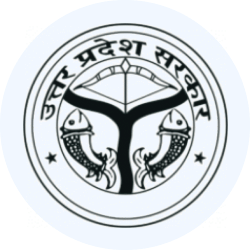We are inching towards modern polity—there is no need of God to come to power - Essay, UPSC MAINS | Course for UPPSC Preparation - UPPSC (UP) PDF Download
We are inching towards modern polity—there is no need of God to come to power
structure
(1) Opening — Positive aspects of religious beliefs and teachings.
(2) Body — Questions of reason and logic.
— The money power of religi-ous institutions.
— Whether man ruled man in the name of God, the king or themselves.
— What should be the state’s foremost duty?
— The attack and counter-attack of the political parties.
— Emotions to consolidate votes and notes.
— The double standards.
— The social system.
(3) Closing — India is too large and too diverse to become Ram Rajya ruled in the name of the sectarian God.
The ideas of bhakti, faith, belief and sensibilities are supposed to override all questions of reason and logic. They comprise that area of human interaction that allows for no debate. You either believe or you do not. You follow or be damned. There is a note of autocracy and diktat in it which is so easy to use, particularly when dealing with a group that one wants to keep weak.
There are many positive aspects of religious beliefs and teachings. After all, they form the basis for a central idea of morality that keeps society together. Life, death, good and evil, the limitlessness of the universe and the limitations of man, all emerge out of religious and philosophical concepts. When the outward manifestations or symbols of these assume more significance than the philosophical or moral ideas, they become ends in themselves and objects for exploitation.
Since in themselves they were nothing but mere objects, they had to be imbued with special meaning to attract the attention of the simple mortal who, at all or some times in life, needs answers to unfathomable questions, solace during inexplicable tragedy, and a peg on which to hang his hopes and failings. A miracle, a divine manifestation, cosmic power and hallowed ground are all words and ideas pasted on to an object. A cloth with the imprint of a face, supposedly used by Christ to wipe his face during his crucifixion, has attracted awe-struck and devout pilgrims for years, until a forensic study with the latest technology raised doubts about the authenticity of its age. The knick-knocks and accessories of the priests who enable others to conduct a roaring business in black and red threads, copper, brass, silver and gold amulets (taveez), conch shells, caps, scarves, shawls and so on. Religious institutions such as temples were traditionally places which supported the work of many different types of artisans and weavers.
The religious bodies and boards grew into mammoth institutions with a massive amount of wealth. Wealth meant control, ownership, power. If one goes back to time immemorial, one sees the Christians crusading across Europe, the battles for power between different sects of Buddhists across central Asia, the battles right through history almost everywhere, between Church and Church, or the Church and the state. In Pakistan, the clerics and the army combined to obtain political power. The cross
ire between different groups of Sikhs across Punjab, all show the Ayodhya- BJP battle as just another extension of the same story.
The so-called modern democratic state and the advent of communism were all mechanisms to deal with either theocratic or feudal power. They both sought to provide an answer to people's daily needs, in the process acquiring land, collecting revenue through taxes and laying down laws of governance. The essence of the matter was the same, whether man ruled man in the name of God, the king or themselves. The battle today is between those who are using the name of God to come to power and those who are painfully inching towards a modern polity.
Politically, the process has three choices. Do we allow the Vishwa Hindu Parsihad to swallow the Bhartiya Janata Party and bulldoze India in the name of Ram, do we continue with the feudal dynasty of the Gandhi-Nehru family with its hypocritical, democratic face, or are we ready for a modern secular state, where religion is a matter of personal and private action only, and the state's foremost duty is to uphold the Constitution and the laws of the land?
The income from the offerings proposed to be collected at the temple of Ram, when it is built, can that be used, to finance the controls of power. Since the BJP could not come to full power by riding on the back of the Janata Dal, its plans went totally awry when V.P. Singh announced in implementation of the Mandal Commission Report. The name of Ram was the only rabbit they could pull out of the hat to retrieve and revive their vote for a Hindu rashtra. And into the trap fallen the weak, who saved their meagre pennies to enrich the coffers of the priestly chiefs, and the trading communities for whom Lakshmi, wealth, is God.But now we are inching towards modern polity.Now not Ram but development and corruption free system will be the agenda for winning elections.
A frantic whipping up of emotions to consolidate votes and notes and has nothing to do with Ram or patriotism. The logic of forgive and forget for the sake of nationalism is specious and hollow. According to some, Hindus, must be recompensed for the hurt caused to their psyche by Babar. The Mughals ruled India and as invading exploiters harmed us, they say for which they want be Muslims to pay the price today. They ask the Muslims to give up the three sites, Ram Janamsthanam in Varanasi in a spirit of 'good will' as mosques here are 'eyesores'. The Hindus cannot be asked to forgot, but according to them, the Muslims can. Why the double standards? And if today's Muslims must repair the harm done 400 years ago, why does the same people oppose reservations where by today's upper castes are being called upon to sacrifice a tiny mite to recompense the injustice done to others for 5000 years? The double standards reveal the political motivation of such arguments.
The Hindu women of the 'forward' castes have always had both encouragement and leisure to spend part of their day in a puja room or a visit to a temple. The virtue of a good Hindu wife and mother is supposed to be demonstrated by her piety. For her, only God and her father/husband/brother/son should matter, with God and the husband being an interchangeable concept. The Ram Janambhoomi is trying to further enslave those women who are part of this syndrome, into mindless devotion to a plot of land and the idea (only a mere idea) of a child Rama. What kind of a society are we that keeps a women behind the veil, producing children till an adequate number of boys are hand, eating the leftovers on the table, walking miles to fetch water and fuel, and remaining, all their life, a mere shadow hovering about the kitchen or puja room? Women are not encouraged to become literate or think as independent human beings who are aware of development policies, the problems of unemployment, social causes of violence, technological advances in space or medicine, and hundreds of other 'secular' matters.
Bhakti above sanity, order or concern for one's fellow humans is the slogan they have been brainwashed over centuries into accepting. And what about all the other gods of the Hindu pantheon the thousand names of Vishnu the incarnations of Shiva, a Kali and other forms of mother goddesses? Aren't they supposed to be ultimately all one? Isn't that one also Christ, Allah and the Supreme Guru? If so then why are we chopping all our gods into hundreds of pieces? And for a piece of real estate to house the idol of one of those pieces, we are chopping up each other and our country into a many pieces. India is too large and too diverse to become Ram Rajya ruled in the name of the sectarian God.
|
113 videos|360 docs|105 tests
|
FAQs on We are inching towards modern polity—there is no need of God to come to power - Essay, UPSC MAINS - Course for UPPSC Preparation - UPPSC (UP)
| 1. Is God necessary for a person or a political leader to come to power? |  |
| 2. What is modern polity? |  |
| 3. How does modern polity impact the role of religion in politics? |  |
| 4. Are there any challenges in embracing modern polity? |  |
| 5. How does the evolution of modern polity impact traditional power structures? |  |
































